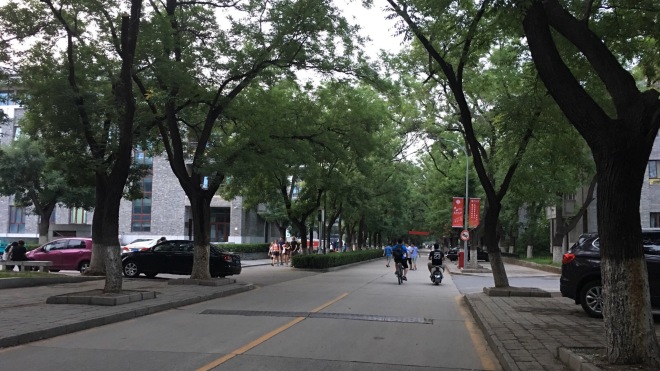Almost three weeks since the official start of the campaign, what have we seen so far? We have seen candidates arguing against each other. We have heard them during the PiliPinas Debates. But have we seen them talking about their programs? Have we heard them presenting their vision for the country?
Ninety days of the campaign is both long and short—long, that it may cause physical and mental stress; short, that candidates have to go around the country to convince the voters. Given various constraints, candidates must be strategic. Below is a non-exhaustive listing of points I thought candidates might consider. Of course, they already have their respective strategies. What I have here is more of a prescriptive (or normative?) list.
1. Candidates should use their strengths, take advantage of their strong points. This will make them look even stronger. Are they good at speaking, personal (one-on-one) campaigning? Are they good at issues? They must show this strength and capitalise on them.
2. Also, candidates have three tasks: maintain the base, convert the following of others, and sway the undecided. Candidates already have a following. The first order of business is to maintain that following. Next, they must be able to convince those who are already supporting another candidate to be converted. This is essential. The target of campaigns is not those who you know are voting for you. Thus, it is also important to talk to those who are undecided. Once swayed to your favour, keep them within your influence.
3. Candidates should not make very broad promises. They should avoid too specific ones as well. They might be caught by vagueness or details. Vague promises may sound like motherhood statements. Voters today can very well notice if they are fooled by the candidates. Empty promises will not hold water. But giving too much detail can also work against the candidate.
4. Candidates may challenge fellow candidates, but it must be at the issue-level. Personal attacks might be useful, but not as desirable. The usual way of doing campaign is by criticising your opponents. This might work, but it does not paint the candidate in good light. The positive campaign should still be the most preferred way.
5. Badmouthing other candidates is a big no-no. Candidates must focus on their agenda. Avoid giving incriminating statements. For an issue-based election campaign to be sustained, candidates must focus on their agenda. What do they want to do? What is their vision? Name-calling and trash talking will not bring them far. It can also create possible deflection from the current followers.
6. Goals of candidates are two-staged: first, win the elections; second, fulfill election promises. If only one of two then problems may arise. Elections do not end after the proclamation of candidates. Candidates must be conscious of the fact that they have to deliver their promises. People are likely to demand more accountability from the candidates than before.
7. Candidates should avoid dancing, singing, or performing during campaign sorties. They are supposed to showcase what they can do in office. Elections is not an entertainment show. It is the means by which the people select their leaders. Thus, we must demand from the candidates: What can you do if elected? Dancing, singing, or performing on stage is not part of their job once elected.
8. Candidates are expected to be clean. They should not engage in illegal activities like drug pushing. Narco-politics has no place here. It is common knowledge that candidates spend a lot of money during campaign season. But that should not force them into dealing with drug lords and gamblers in order to have funding for elections. If they come clean, they become a much better option that those who entertain business and sometimes illegal interests.
9. The local network works. Candidates should focus on creating and maintaining networks to ensure victory, hopefully without resorting to violence. Local is the way to go. If a candidate has connections down at the sitio and barangay levels, victory is not impossible to achieve. In fact, many politicians are taking advantage of their local networks to win national positions.
10. Candidates should know the job they want to be elected to. The job of a president is different from a senator, a mayor, or a councilor. This is one of the most important items in this list. Candidates must be aware that they are running for a position in the executive or legislative branches. Otherwise, the candidate may be confused on what has to be done, what can be done, and what was promised. This can also help them configure their plans according to what they are expected to do.
Again, this list is not exhaustive. Others may even say that the contents of the list are very obvious. Obvious they may be, it is still important to note and write them down. Also, the contents are also subject to disputes. The statements are quite generic, as it tries to prescribe a certain behaviour among candidates.
For whatever its worth, I hope this listing helps us understand how candidates should act, and how we as voters should expect them to campaign in an acceptable fashion.
Image: http://newsinfo.inquirer.net/files/2013/05/2013-election.jpg


 Our life is almost an open book for many people. It was not the ideal, but it is the best nonetheless. After all the trials that we faced, we stood still and kept moving forward. This is primarily because of mama. Mama was the cornerstone of myself—my strength and motivation. Mama was the symbol of hope when there was none. She was my light in the dark. We might not agree most of the time, but mama is the only person I would love the way I am loving her. Without her, I would not even see the beauty of life. Without her, I am nobody.
Our life is almost an open book for many people. It was not the ideal, but it is the best nonetheless. After all the trials that we faced, we stood still and kept moving forward. This is primarily because of mama. Mama was the cornerstone of myself—my strength and motivation. Mama was the symbol of hope when there was none. She was my light in the dark. We might not agree most of the time, but mama is the only person I would love the way I am loving her. Without her, I would not even see the beauty of life. Without her, I am nobody. Achi is now a mother, too! She was my childhood buddy. She would keep the Lego or bike away from me and Chinee, but was always there to stand by us. Makulit — this is how she would describe me during our younger days. As the eldest among us, she tried to show courage and strength in the face of life’s greatest challenges. Even if we do not agree on certain occasions, I guess the distance that separates us now (because she is living in Japan) makes me feel partly incomplete.
Achi is now a mother, too! She was my childhood buddy. She would keep the Lego or bike away from me and Chinee, but was always there to stand by us. Makulit — this is how she would describe me during our younger days. As the eldest among us, she tried to show courage and strength in the face of life’s greatest challenges. Even if we do not agree on certain occasions, I guess the distance that separates us now (because she is living in Japan) makes me feel partly incomplete.
You must be logged in to post a comment.